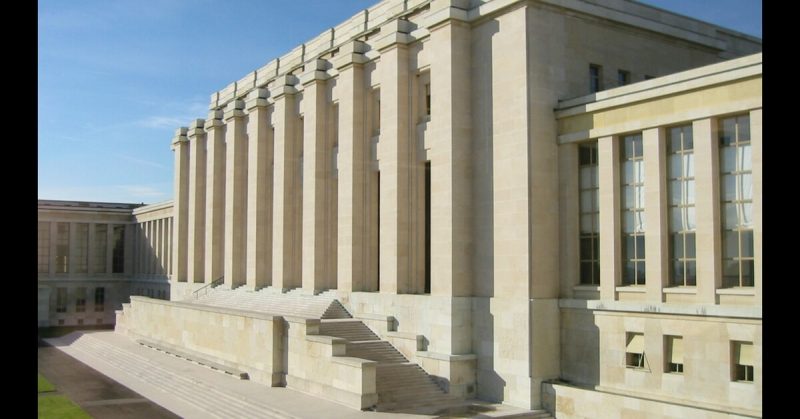Documentation has been discovered at the United Nations that shows the Allies were aware of the Holocaust two and a half years before previously assumed.
In December 1942, the governments of the United States, the United Kingdom, and the Soviet Union were aware that two million Jews had been exterminated by the Nazis and that five million more were in danger of being killed. The three governments began preparing charges to convict Adolf Hitler and other Nazi leaders of war crimes. They did not, however, do anything to help the prisoners in concentration camps or those seeking asylum to escape the genocide.
In March 1943, a minister in Winston Churchill’s war cabinet, Viscount Cranborne, recommended that German Jews not be considered a special case. He stated that Britain was too full to accept any more refugees.
Historians had assumed that the Allies learned of the Holocaust when they found the concentration camps during their invasion of Germany. The charges filed with the United Nations War Crimes Commission (UNWCC) proves that they were aware much sooner than generally believed.
Dan Plesch is the author of “Human Rights After Hitler.” He is also a professor at the Centre for International Studies and Diplomacy at the SOAS University of London. He found the war crimes convictions paperwork while doing research in the UN archives. The evidence for the indictments was apparently gathered from witness testimony that was smuggled out of the concentration camps and from information obtained from the resistance movements in German-occupied countries.
Even with the accumulated evidence, the Allies did not move to assist the Jews in danger of being placed in the camps or those already held captive within them. President Franklin D. Roosevelt sent an envoy, Herman Pell, to the UNWCC to assist those in peril, but anti-Semitic sentiment in the State Department thwarted the effort.
Initially, members of the State Department were concerned about maintaining good relations with Germany after the war. They were also afraid that there would be no leadership left in Germany to help rebuild it after the war if the Allies indicted everyone involved in the Holocaust. Without strong leadership in Germany to oppose the communist government of the Soviet Union, the governments of the US and the UK were afraid the world would be in bigger trouble after the war than they were during it. When Pell went public with the details of what was happening, the State Department was forced to agree to the Nuremberg Trials, in which members of the Nazi leadership were tried for war crimes.
The archives that contain the records discovered by Plesch were closed to researchers for 70 years after the war. To gain access, a researcher needs approval from the Secretary-General of the UN and also from his own government. For several years after researchers were allowed this restricted access to the documents, they were forbidden from taking notes.
Yad Vashem is the Holocaust memorial in Israel. They placed a message on their website that states that, while Allied governments became aware of the mass extermination of Jewish people by the Nazis, they may not have fully grasped the extent of the crime. The shock expressed by senior Allied leaders when they liberated concentration camps is evidence that they were unprepared for the reality of the Holocaust.
The archive is being presented to the Wiener Library in London. The library is the oldest Holocaust archive in the world. It also contains the largest collection in Britain devoted to the Nazi era. The library will make the documents available online for researchers to study.
While the new information does not markedly change our understanding of the Holocaust, it does color it differently and will provide significant information to historians who had overlooked the archives in the UN because it was assumed that there was no new information within them.
